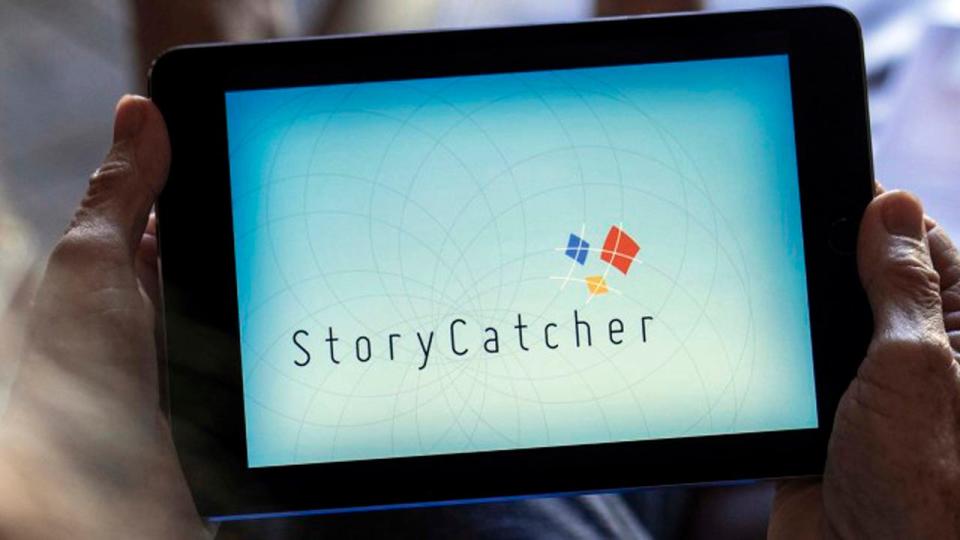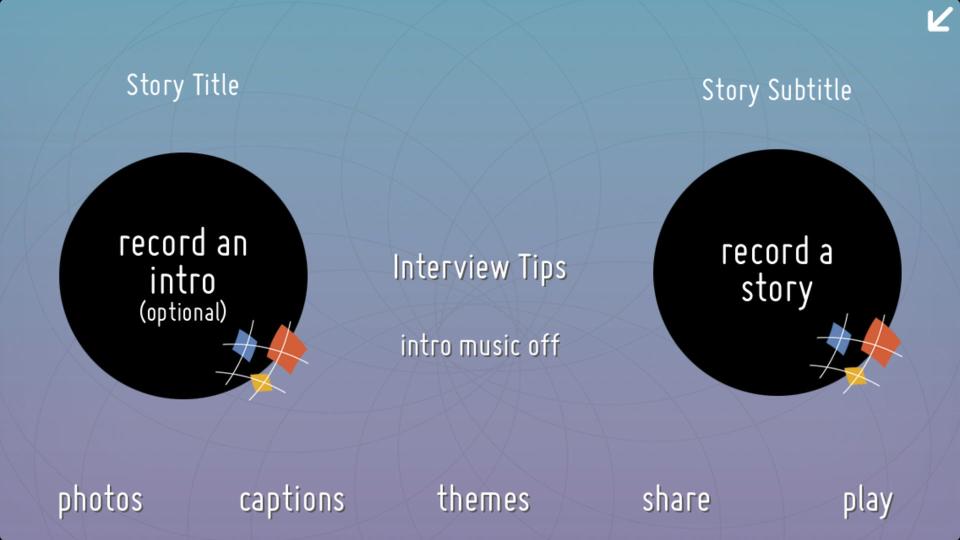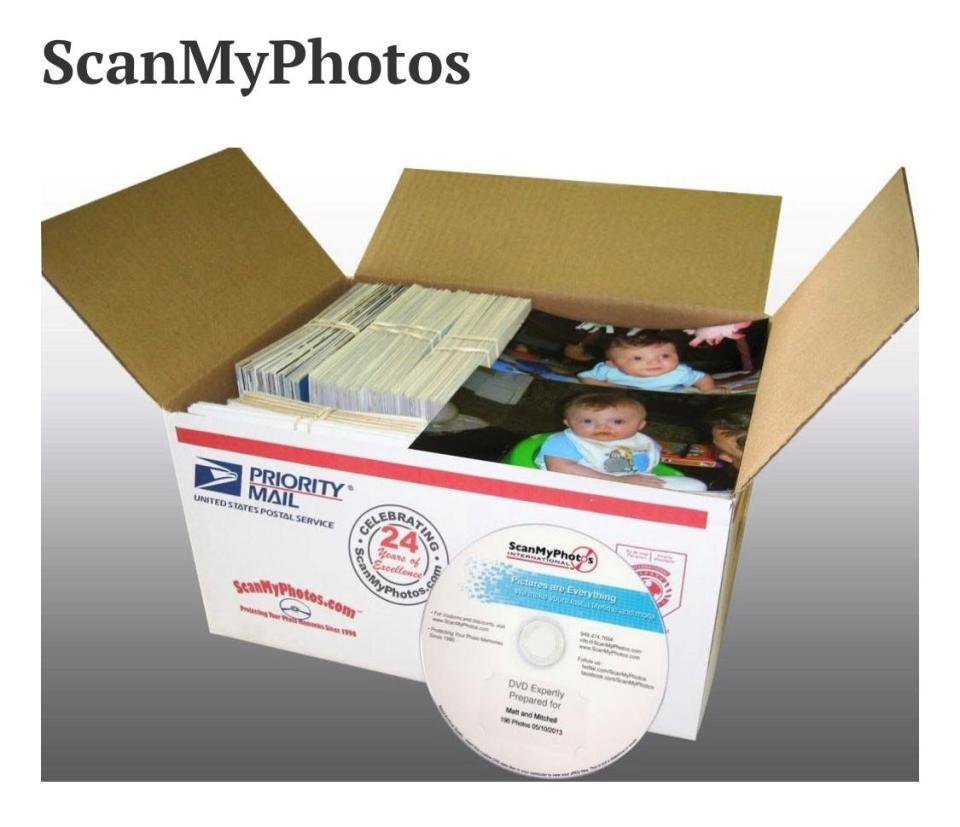Preserve your family stories with these ‘time capsule’ apps and sites
As much as we’d like to believe otherwise, we’re not here forever.
Science and technology may help extend our time, along with a healthy lifestyle and positive outlook, but we must grasp our mortality and simply try to do our best within our limited window.
Understandably, many of us want to preserve memories and pass down knowledge and traditions to our kids, grandkids, great-grandkids, and so on.
As the expression goes, there’s an app for that. Many, in fact.
And how do I say this delicately: With more than 100,000 Americans already dead from the COVID-19 pandemic – and many dying alone, without family allowed to be there in the final days – archiving one’s life with stories and photos, before it’s too late, may be more important than ever before.
The following is a look at a few worthy digital “time capsule” options to consider.

StoryCatcher Pro ($4.99; iOS)
Available exclusively for iPhone and iPad, StoryCatcher Pro offers an easy way to create and share video stories.
Simply point the phone’s camera lens at a loved one, tap record, and begin to ask questions. Not sure where to start? The app provides some suggested starter questions. As the documentarian, you can also import photos, with the option to add captions, and dress up your captured memories in one of several different themes, title cards, and more.

A “Collections” feature gives you additional documentary-like tools, to create a longer and more polished keepsake, if desired. Once you’re done, share it privately (via email or to Dropbox) or publicly (to YouTube or Vimeo) right from within the app.
A free but limited StoryCatcher Lite version was previously available and will return later this year. Plus, an Android version is in the works, says the company.

StoryCorps (Free)
Founded in 2003, StoryCorps began as a recording site in New York City’s Grand Central Terminal – to capture up to 40-minute interviews about people’s lives – followed by portable MobileBooths traveling across the country and permanent fixtures in Atlanta and Chicago. StoryCorps says it has collected nearly 75,000 interviews, which are then archived at the Library of Congress and shared through StoryCorps’ podcast, NPR broadcasts, animated shorts, in books, and more.
Available for iOS and Android, the optional StoryCorps app was designed to prep questions ahead of the interview at recording sites, plus the free app also lets you record high-quality conversations on your phone or tablet, and then upload the audio to StoryCorps for the Library of Congress.
In response to the global pandemic, StoryCorps Connect lets you use video to record an interview with a loved one remotely, to keep indefinitely, and the audio (and a still photo) from each interview goes into the StoryCorps archive at the Library of Congress. To get going, invite someone you want to honor with an interview and invite them to participate, prepare with the suggested questions, and once both parties are logged in, you’re prompted to record, save, and upload the chat.
StoryWorth ($89)
Another clever – and sentimental – approach to immortalizing loved ones is through text-based stories and photos.
With StoryWorth, you choose whom you want to interview, such as a parent or grandparent, and they’ll receive a weekly email with a thought-provoking question to answer. You can go with the suggested questions or create your own, such as “Please share what a day in your life was like during WWII?” or “What have been some of your life’s greatest surprises?” Since it’s email, recipients can answer when it’s convenient for them. Photos can also be uploaded.
At the end of the year, the person you’re interviewing will receive a hardcover book as a keepsake, with all archived stories and memories.
Considering we’re supposed to be practicing social distancing, not to mention relatives and close friends may live in another part of the country or world, this email approach is also a practical one given the pandemic.
Usually $99, StoryWorth is offering $10 off if ordered through Father’s Day. Shipping is free.

Ancestry ($99)
More than 16 million people have completed those AncestryDNA kits ($99), where you send in a saliva sample to Ancestry’s lab and your entire genome is analyzed – all 23 pairs of chromosomes – which carries genetic information from both your parents, passed down through the generations. After a few weeks, you get back a map which shows the regions your ancestors were from, percentage of each nationality, and possible relatives.
But DNA is only part of the story.
For $99 for six months, Ancestry also offers subscriptions to search its vast database of more than 24 billion records, to help build out your family tree. Search for birth certificates, marriage records, immigration and census data, newspaper clippings, and much more – to help preserve a family’s legacy. If you see a small green leaf appears by a name on your tree, click or tap it to see what Ancestry has linked to its massive records collection.
Members also have the option to upload their own photos, records, and stories to add to their family tree, which can be shared with relatives and friends.

Scan My Photos (from $40)
Finally, another way to ensure your family history can withstand the test of time is to digitize photographs.
Companies like the aptly-named ScanMyPhotos.com has digitized more than 600 million pictures since the service launch nearly 30 years ago.
Ordered online, its most popular service sends a box to your home – large enough to pack up 1,800 photos, say the company – and for $145 also includes delivery of your photos to and from its California facility. Turnaround time is two to three weeks.
There are optional add-on features for same-day scanning, with instant uploading, as well as digitization services for professional hand-scanning of 35mm slides and film negatives.
If you prefer to do it yourself, you can pick up a flatbed photo scanner, starting at $69 for the Epson Perfection V19, for example, while the Epson FastFoto FF-680W High-Speed Scanning System ($599) can scan a bunch of photos as fast as one per second at 300 dots per inch (dpi) quality.
Follow Marc on Twitter: @marc_saltzman. Email him or subscribe to his Tech It Out podcast at https://marcsaltzman.com/podcasts.
This article originally appeared on USA TODAY: Coronavirus time capsule: Apps to help record, archive memories

